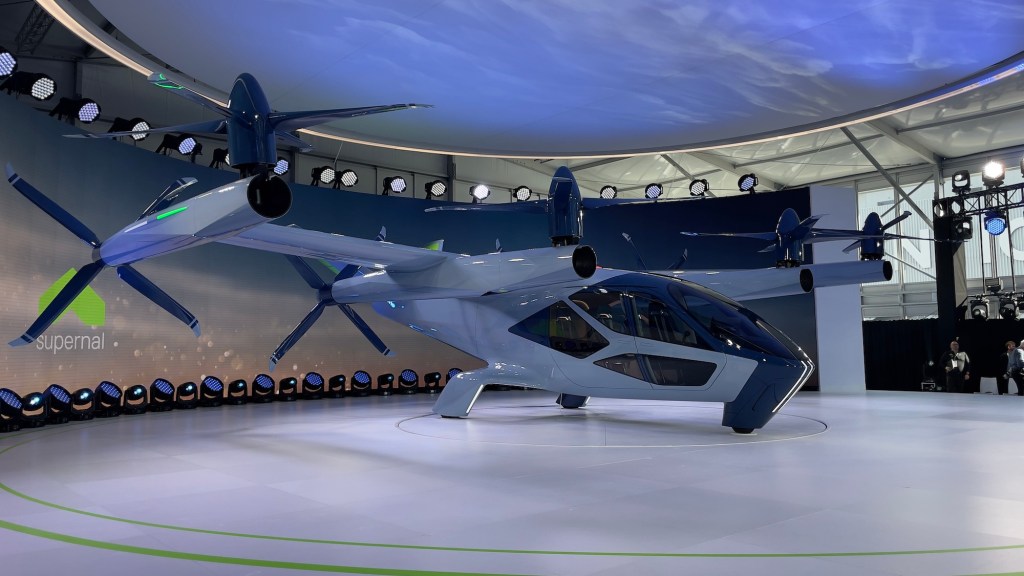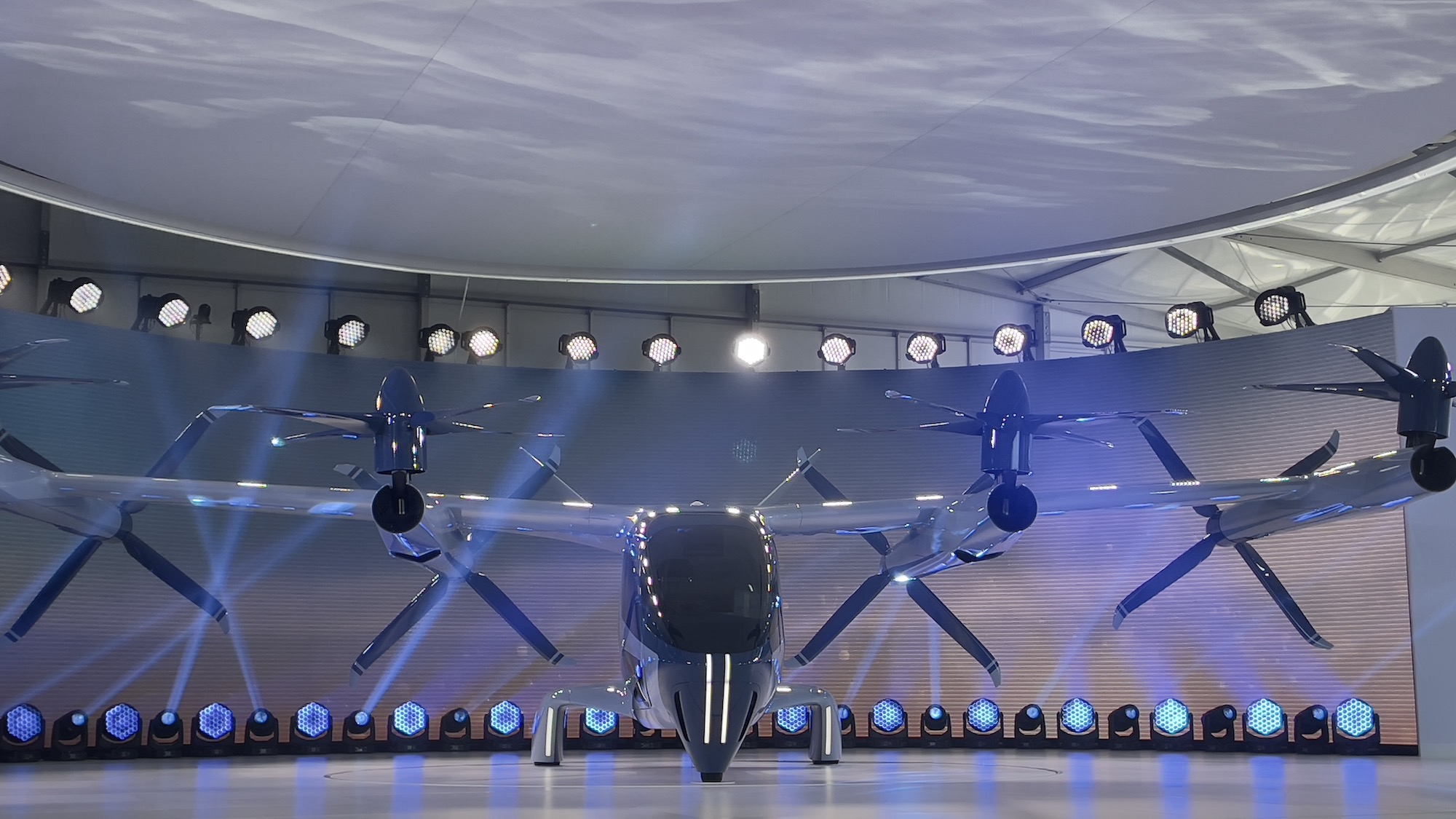
Supernal, the advanced air mobility company under Hyundai Motor Group, took the wraps off its latest iteration of an electric vertical takeoff and landing aircraft called the S-A2 that executives say is designed to shuttle passengers by 2028.
The S-A2 is essentially a more fully baked version of what it intends to launch commercially and confirms that, at least for now, Hyundai is still intent on getting into the yet-to-exist electric air taxi business.
That timeline, which was announced Tuesday during CES 2024, has come down to earth in the three years since it revealed its vision concept, also known as S-A1. At that time, Hyundai announced a partnership with Uber Elevate — a company that was gobbled up by Joby Aviation — to develop and potentially mass-produce air taxis for a future aerial rideshare network. Uber Elevate said it would start flight demos in 2020 and offer commercial rides in 2023.
With the eVTOL industry still lacking a single commercial operator, Hyundai’s Supernal came back to CES 2024 with more grounded plans.

And it’s certainly throwing resources at the project to get there — although Hyundai has never disclosed its exact investment. Supernal has grown to a 600-person team and is also using technical and business capabilities of Hyundai Motor Group and aviation suppliers around the world as it works toward a commercial launch, according to Jaiwon Shin, Hyundai Motor Group president and CEO of Supernal.
There is still quite a bit of work to be done before that can happen, Supernal CTO Ben Diachun noted on the sidelines of the event.
The S-A2 will have to go through a lengthy Type 1 certification process with the Federal Aviation Administration before it can fly commercially. The company will begin testing this year in California its so-called technology demonstrator vehicles, Diachun said. Supernal will also submit this year its application to the FAA. In 2025, Supernal will submit to the FAA its proposal for means of compliance, he added.
The nuts and bolts
The aircraft shown Tuesday is a V-tail with a distributed electric propulsion architecture and eight all-tilting rotors. The S-A2 is loaded with the kind of redundant components like the powertrain, flight controls and avionics — all of the safety critical systems required for commercial aviation.
The aircraft is designed to cruise 120 miles-per-hour at a 1,500-foot altitude. This is meant to be for suburban into inner city travel, with trips falling between 25 and 40 miles, initially.
Diachun said onstage that the aircraft would operate at about 65 decibels as it takes off and lands and 45 decibels while cruising, about the same as a dishwasher, he claimed.
The company’s designers and engineers also made the interior modular, including the ability to replace the battery as technology improves.



